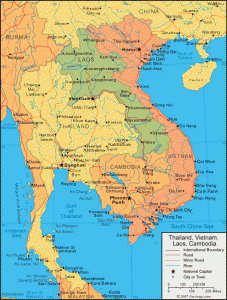People who value truth seek justification for their beliefs. Three questions:
Question 1: Is there a method to proper “justification”?
Should all justification for a belief rest on empirical evidence? If there is no “tangible” evidence to believe in something, are you ever justified in believing it?
(If we do believe that tangible evidence is what is necessary to believe something, then how strictly do we want to follow that? For example, you have probably never seen a single physical object in Laos, but you believe that houses, bicycles, and cars exist there. You believe that Laos exists. And what tangible evidence do you have to back this up. You have not had a sensory experience of anything that suggests houses exist in Laos. You may have seen pictures, but you merely trust that they are accurate pictures.
If your belief in the exists of physical things in Laos relies on “trust” of other peoples’ supposed sensory experiences, that is a different thing altogether.)
Question 2: Is justification objective?
If you sit down to play some poker with a few friends, and you get dealt a royal flush, are you justified in believing that the dealer is cheating? What about if you get dealt two in a row? Three? At some point, of course you are justified in believing something fishy is going on, but if this is true, it implies that a line can be drawn somewhere. At what point does a non-certain belief become justified?
Question 3: Is justification ultimate?
Is someone ever justified enough to be absolutely certain? Or, is that just the height of intellectual presumption. If it is possible to be justified in certainty, what method of reasoning can be used to attain such justification? If it is not possible to be justified in absolute certainty, what method of reasoning led us to that conclusion? Are we absolutely sure that our thought process was sound enough to lead to the conclusion that we are never justified in being certain?

